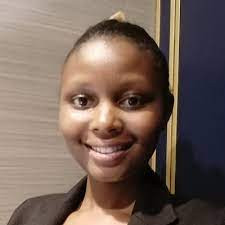
THE sluggish technology transfer pace in Zimbabwe is slowing down the development of the local film industry, film industry promoter, Tafadzwa Chovuchovu has noted.Chovuchovu has so far successfully attended two editions of the International Images Film Festival (IIFF) for Women under the guidance of festival patron-cum-novelist, playwright and filmmaker Tsitsi Dangarembga.
Speaking to NewsDay Life & Style, she said the absence of science fiction movies at several Zimbabwean film festivals was a reflection of technological and technical gaps existing in the country’s film sector.
Science fiction movies are a genre characterised by stories involving science and technology, human nature and social organisation in futuristic or fantastical settings, created in cinema through distinctive iconographies, images and sounds often produced by means of special effect technology.
“Zimbabwe has a long way to go in terms of film technology which shows in the lack of internationally-recognised science fiction movies and fantasy films,” she said.Chovuchovu reckons her involvement in the IIFF 2023 edition was a big lesson in getting a global perspective of the African film industry.
She said the privilege of planning and managing such a renowned international festival that will put Zimbabwe on the map was her major highlight of the just ended year.
“Engaging with diplomatic parties such as the embassy of Spain in Zimbabwe, the United States embassy in Zimbabwe, the Australian embassy and the embassy of the Netherlands in Zimbabwe as well as international partners such as the Sisters Working in Film and Television and the Internationales Frauen Film Festival Dortmund Koln (IFFF), ensured the festival’s global expansion,” she noted.
“The Institute of Creative Arts for Progress in Africa (ICAPA) Trust was able to bring IIFF not only to urban areas, but also to peri-urban communities such as Dzivarasekwa and Hatcliffe, as well as the city of Bulawayo ensuring the participation of Zimbabweans from diverse backgrounds.
“ICAPA continues to develop new ties while preserving existing ones to guarantee that the festival expands year after year.”She said the interaction of the filmmakers and the audience at the festival enabled sharing of experiences with the filmmakers who had first-hand feedback on their films.“We believe that the need to highlight women’s voices through women-centred stories is a worthy cause,” Chovuchovu said.
She continued: “With filmmakers like Dangarembga who strives to provide opportunities for Zimbabweans to compete in the film industry on an international scale by facilitating workshops in scriptwriting, producing, directing pitching and other areas, the country’s film industry should be more inclusive of women and work harder to compete on a (global) basis.”
Commenting on the IIFF awards, Chovuchovu indicated that the awards were thoroughly vetted as the jury worked tirelessly as it debated on the best way forward.The jury had its verdict that the best script in the main competition was Last Queen written by Adila Bendimerad and Damien Ounouri.
Binete Undonque in Nome was chosen the Best Actress, while the Best Cinematography winner was the Last Queen Dop Shadi Chaaban.The Best Director went to the Last Queen Directed by Adila Bendimerad and Damien Ounouri.
The Best Depiction of a Woman award was bestowed on Nome the film directed by Sana Na N ‘Hada. The film also won the Best Audience prize.Before Now and Then produced by Gita Fara, Ifa Isfansyah and Suma Adiwanita won the Best Film award.
The winner for the Best Documentary was Seven Winters in Tehran directed by Steffi Nierderzoll, while The Last Ranger directed by Cindy Lee won the Best Short Film award.The Best Zimbabwean Fiction Film winner was Daughter of The Soil directed by Derick Manieca.






